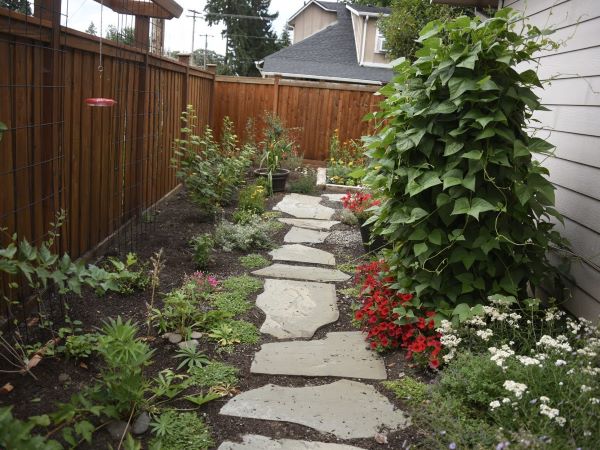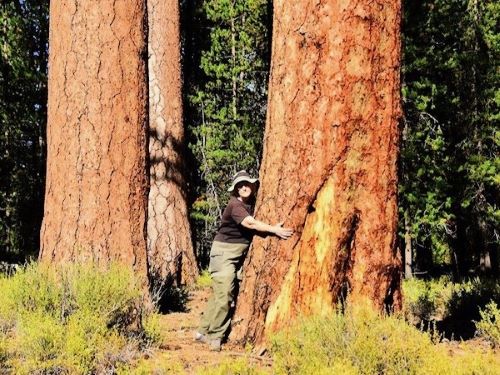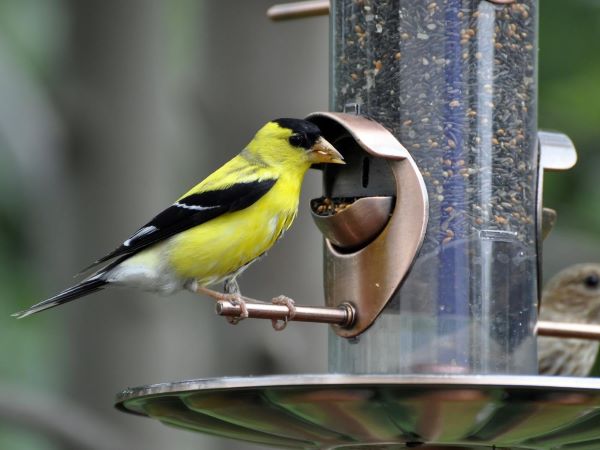Our Habitat Haven volunteers have begun site visits and been enthusiastically received. At the start…
 The bad news first. The conservation group BirdLife International’s latest report found that 40 percent of the world’s 11,000 bird species are in decline. The good news is that many people are seeking to protect nature in a myriad of ways. They develop conservation programs to protect ecosystems and for various specific species. Some of this is done in the field, some through communication with policy makers, and some in the courts. It’s easy, but deceptive and disempowering, to think that we as individuals can’t make a difference. One of the most important things we can do now is to vote and let our representatives know that we value laws that protect species and habitats. Protective laws can work: 70 percent of the birds listed as threatened or endangered under the Endangered Species Act (ESA) have populations that are now stable, increasing, or have recovered enough to be delisted.
The bad news first. The conservation group BirdLife International’s latest report found that 40 percent of the world’s 11,000 bird species are in decline. The good news is that many people are seeking to protect nature in a myriad of ways. They develop conservation programs to protect ecosystems and for various specific species. Some of this is done in the field, some through communication with policy makers, and some in the courts. It’s easy, but deceptive and disempowering, to think that we as individuals can’t make a difference. One of the most important things we can do now is to vote and let our representatives know that we value laws that protect species and habitats. Protective laws can work: 70 percent of the birds listed as threatened or endangered under the Endangered Species Act (ESA) have populations that are now stable, increasing, or have recovered enough to be delisted.
Some of the many other things we can do as individuals to make a difference are listed below.
Ways we can help migratory and native birds:
Birds need food, water, and shelter.
Provide food and fresh water. Feeders and bird baths are enjoyed by birds and by the people who get to watch them.
Keep your bird feeders and water source clean. (Immerse feeders for a couple of minutes in a solution of one part household chlorine bleach to nine parts water; then air dry.)
Garden with native plants. Plant a diversity of native vegetation—flowers, shrubs, trees—for food and shelter. For bird and pollinator-friendly gardening resources check out: laneaudubon.org/node/796
Provide cover. Shrubs, brush piles, and dead trees (snags) are great sources of shelter.
Help keep birds safe and healthy.
Don’t poison the birds and the food that they rely upon. Avoid the use of chemical pesticides, rodenticides, and herbicides.
Birds don’t see glass. Help prevent window collisions. Provide screen covers. Use closely spaced decals. A network of parallel, vertical strings spaced 4 inches apart can be placed on the outside of windows. For more ideas, see laneaudubon.org/conservation/issues/bird-window
Migrating birds are disoriented by artificial lighting. Shield outdoor lights and direct them downward. Close curtains and blinds in the evenings.
If you fish or hunt or know people who do: Birds that forage in water are poisoned by lead sinkers used for fishing. Birds of prey are poisoned by lead shot used for hunting after they scavenge carcasses.
Outdoor cats kill billions of birds each year. Indoor cats live an average of three to seven times longer than outdoor cats. Keep cats indoors for their health as well as the safety of native wildlife.
Don’t feed waterfowl. Despite good intentions, it increases transmission of disease, conflict, stress, and malnourishment. Especially, don’t feed them bread.
 Birds need habitat.
Birds need habitat.
Support efforts to create, restore, and preserve public green spaces.
Volunteer to help restore native habitat in public spaces.
Consumer choices matter.
Drink shade-grown/organic coffee to help improve habitat for migratory birds.
Your meal choices affect the overall health of the environment. Consume more plant-based meals. Buy local. Buy organic.
Reduce the use of plastics.
Recycle, reduce, reuse. Conserve energy and water,
Bring your friends and family outside.
Enjoy the color, sound, and splendor of birds!
Did I mention VOTING!?
Vote for elected representatives who will uphold bedrock environmental laws.



